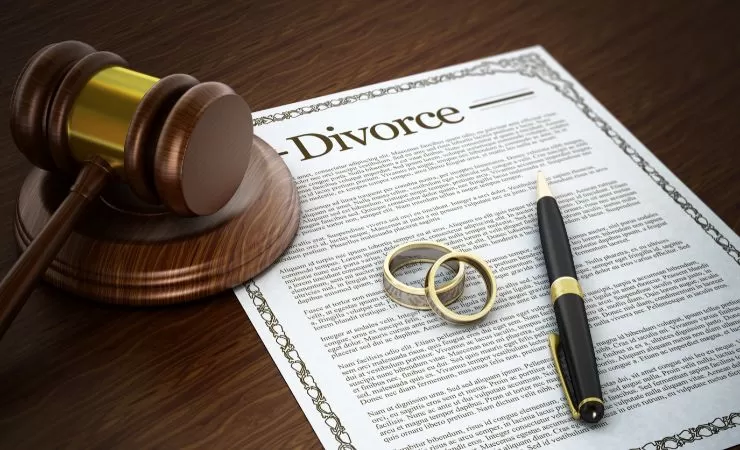
Divorce can be one of the most emotionally and financially difficult experiences in a person’s life. While the emotional toll is often unavoidable, the financial burden—especially the high cost of legal representation—can feel insurmountable for individuals with low or limited income. If you’re in this situation, you’re not alone—and more importantly, you have options.
This comprehensive guide is created specifically for individuals who are seeking budget-friendly divorce lawyers or even free legal support. Whether you’re initiating the divorce or responding to one, this article outlines practical, effective pathways to secure legal help, understand your rights, and move forward with clarity and confidence—without the crushing cost.
Why Legal Help Is Critical in a Divorce—Even If You Can’t Afford a Lawyer
While it’s technically possible to handle your own divorce (called pro se representation), many cases involve complex issues such as child custody, alimony, property division, and protection from abuse. Without legal support, you risk:
Unfair financial settlements
Losing custody or visitation rights
Missing out on benefits or protections you are legally entitled to
Making legal mistakes that cost you more in the long run
That’s why finding affordable legal representation is not a luxury—it’s a necessity. The good news? Many resources exist to help low-income individuals access quality legal services at low cost or no cost at all.
Exploring Your Affordable Legal Options
1. Legal Aid Organizations
Legal Aid programs are nonprofit agencies that provide free legal services to individuals who qualify based on income level. These organizations specialize in family law, including divorce, and are funded by federal, state, and local grants.
Services may include:
Divorce filings
Child custody representation
Domestic violence protection
Mediation assistanceWhere to start:
Visit Legal Services Corporation (LSC) or search your state’s legal aid directory.
2. Sliding Scale Law Firms
Many private attorneys or law firms offer sliding scale fees, which means the amount you pay is based on your income. For instance, someone earning $20,000/year might pay 30–50% less than the standard hourly rate.
Best for:
Those who don’t qualify for free legal aid but still have limited income
Moderate-income individuals who need flexible payment terms
3. Pro Bono Divorce Attorneys
“Pro bono” means “for the public good”—these are lawyers who volunteer to take cases without charging their clients. Some attorneys set aside a certain number of hours each year for this purpose.
Where to find:
Local or state bar association websites
Law school legal clinics
Community organizations and churches
4. Low-Cost Mediation Services
In cases where both spouses are open to negotiation, mediation can be a cost-effective alternative to court. Many community centers and legal organizations offer low-cost or sliding-scale mediation services led by trained professionals.
Where and How to Find Budget-Friendly Divorce Lawyers
Here’s how to begin your search:
Online Legal Directories
Platforms like LawHelp.org, Justia, and Avvo allow you to search by location, specialization (e.g., family law), and fee structure. You can filter for “low-income” or “sliding scale” services.
Local Bar Associations
Every U.S. state has a bar association that may provide:
Lawyer referral services
Pro bono attorney lists
Legal aid contacts in your area
Legal Clinics and Community Resources
Look for:
Legal clinics at universities or law schools (often run by supervised law students)
Community legal workshops or help nights
Family court facilitators, who can help you fill out paperwork and understand procedures
Don’t Let Cost Fool You—Affordable Lawyers Can Be Excellent
It’s a common myth that a low-cost or pro bono attorney offers inferior representation. The truth is, many of these lawyers are:
Highly experienced in family law and divorce
Deeply committed to serving those in need
Familiar with the unique challenges facing low-income clients
Skilled in negotiating settlements and court proceedings
Some of the most compassionate and effective attorneys choose to work in legal aid or offer pro bono services out of a genuine desire to help underserved communities.
How to Prepare for Your Divorce Consultation (Even If It’s Free)
Whether you’re meeting with a legal aid attorney or a pro bono lawyer, being prepared will help you get the most out of the consultation.
Documents to Bring
Proof of income (pay stubs, benefits statements)
Bank account and financial statements
List of assets and debts
Marriage certificate
Any court filings or communications from your spouse or their lawyer
Evidence related to custody (if applicable)
Questions to Ask the Attorney
What services do you offer?
Do you work on a sliding scale or offer payment plans?
What are my rights and options in this divorce?
How do you handle property division, custody, or spousal support in low-income cases?
Define Your Priorities
What outcome is most important to you?
(e.g., keeping custody, staying in the home, avoiding long court battles)Are you open to mediation or negotiation?
What is your goal in terms of time and cost?
Real Empowerment Starts with Information and Support
You deserve competent legal representation—regardless of your financial situation. By understanding your options and taking proactive steps, you can:
Avoid common pitfalls in divorce proceedings
Protect your rights and your children
Move forward with a clean break and a fair outcome
Gain peace of mind knowing you’re supported
Final Thoughts: Take the First Step Today
Divorce is a life-changing process, but it doesn’t have to bankrupt you. Whether you find help through legal aid, a pro bono attorney, or a sliding scale family law firm, know this: affordable legal help is out there, and it’s made for people just like you.
Don’t wait for the situation to get worse—start your search today, get informed, and protect your future.
If you’d like, I can help you find state-specific resources, a list of free divorce lawyers in your area, or a sample script to use when contacting legal aid.
